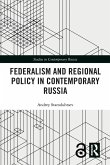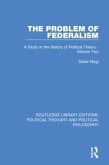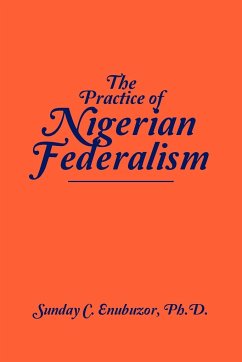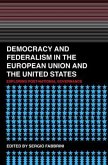In the last decade, the Supreme Court has handed down a remarkable series of decisions invalidating congressional legislation in the name of federalism or statesÆ rights. Most of these were decided by a razor-thin majority of five justices. The cases fall into four categories.''First, in two cases the Court reaffirmed and expanded the principle of state sovereign immunity. In a second pair of cases, the Court held that state governments (other than their courts) cannot be 'commandeered' by Congress to assist in the enforcement of federal law. Third, for the first time since the early New Deal, the Curt, but the familiar 5-4 margin, invalidated a federal statute enacted pursuant to the interstate commerce clause. Finally, the Court adopted a new, and extremely demanding, standard of review for congressional action under Section 5 of the Fourteenth Amendment, which empowers Congress to 'enforce' the amendment 'by appropriate legislation.'''The 13 articles in this volume of The Annals deal with the various aspects of the Supreme CourtÆs federalist revival and the principles underlying it. The first three articles discuss these principles in comprehensive terms. Each of the next three articles focuses on a particular aspect of the federalism principle or its judicial enforcement. These articles are followed by a contribution with regard to CongressÆ ability to escape the constitutional limitations of federalism by means of conditional grants under the spending clause. The next three articles point up alternative themes, purposes, or agendas in the CourtÆs federalism decisions. Another two contributions focus on the anti-commandeering issue, but place that issue in a broader context. The final article illuminates, from several perspectives, the four-year-old federal habeas corpus statute (the Anti-Terrorism and Effective Death Penalty Act).''The Supreme CourtÆs recent decision in Bush v. Gore - issued shortly before this volume went to press - dramatically reverses the case and principles that are the subject of the articles in this volume. Perhaps the best justification for the CourtÆs action is not legal but political. The majority justices - or some of them - may have looked down the road and seen a constitutional catastrophe in the making. Unfortunately, there is also a less benign explanation: one or more of the justices may have reached the conclusion that if the presidential outcome were going to be determined by an act of judicial will, it would be their will, and not that of the Florida Supreme Court.
Bitte wählen Sie Ihr Anliegen aus.
Rechnungen
Retourenschein anfordern
Bestellstatus
Storno








